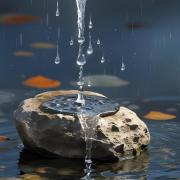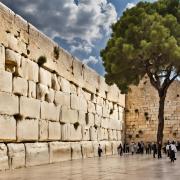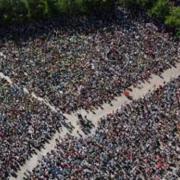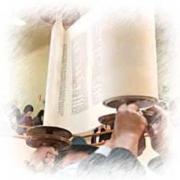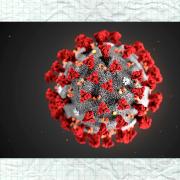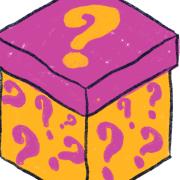Из-за Денег или Аз Баҳри Пул
В Книге Деварим 21:1-2 говорится:
וְיָצְא֥וּ זְקֵנֶ֖יךָ וְשֹׁפְטֶ֑יךָ וּמָדְדוּ֙ אֶל־הֶ֣עָרִ֔ים אֲשֶׁ֖ר סְבִיבֹ֥ת הֶחָלָֽל׃ כִּי־יִמָּצֵ֣א חָלָ֗ל בָּאֲדָמָה֙ אֲשֶׁר֩ הי אֱלֹהֶ֜יךָ נֹתֵ֤ן לְךָ֙ לְרִשְׁתָּ֔הּ נֹפֵ֖ל בַּשָּׂדֶ֑ה לֹ֥א נוֹדַ֖ע מִ֥י הִכָּֽהוּ׃ - "На земле которую даст вам Г-сподь, если вы найдёте тело которое лежит в открытом поле, и вы не знаете кто убийца, то старейшины города должны выйти и определить к какому городу тело лежит ближе, и значит тот город является виноватым в убийстве этого человека."
Почему Тора считает город виноватым в смерти этого человека?
Чтоб ответить на этот вопрос, давайте посмотрим что произошло с этим человеком.
Чужеземец пришел в город, и чтобы найти себе на пропитание пошёл на базар. Проходя по базару, прося милостыню у прохожих и заходя в лавки к торговцам, он не получил от них не единого гроша, куска хлеба или глотка воды. Уставший от скитаний, проголодавшись и утомлённый жаждой, он вспомнил что по дороге в этот город он проходил по полю которое находилось между двумя городами, и он решил собраться с последними силами и пойти в соседний город с надеждой получить там свой кусок хлеба.
Как говорится в произведении Ильяс Малаева, песня исполненая Авраам Толмасовым - Бахри Пул:
Пул набошад дар барат, ҳеч кас намедиҳад салом,
На ки меҳмондўстию, на ҳурмату, на эҳтиром,
На зиёфат, на муроъат, на ки чою на таом,
Дойимо барпо шавад ҳар муддао аз баҳри пул.
И вот он в пути в другой город за куском хлеба. Иссякая силами, уставший и голодный, еле еле он плетётся в другой город, но не дойдя до цели, он падает и умирает на пол-пути в поле.
Тахтаю тобут пулу, гўру кафан ҳам пул, бидон,
Мурдашўю сангу гўрков-пул, ба ғайри мункирон,
Дар барат гар пул набошад вақти мурдан, ногаҳон,
Мурдаат дар кўча монад бенигоҳ, аз баҳри пул.
И вот его тело лежит в открытом поле одно без присмотра и его находит другой прохожий, проходивший мимо, зовёт старейшин чтоб те позаботились об умершем.
Закон гласит - что старейшины должны измерить расстояние от тела до ближе лежащего к нему города. И тот город к которому тело ближе находится, старейшины должны оповестить его о том что они всецело виноваты и на них кровь этого человека. Тогда старейшины города из которого вышел этот бедняк, приведут с собой молодого телёнка который в первом году жизни и которого хозяин ещё не эксплуатировал. Они ломают шею телёнка топором, моют над ним руки провозглашая - "Прости нас странник, что мы не знали что ты был в нашем городе, что ты нуждался, и хотел есть и пить, и прости нашу молодёжь которая была на рынке и к которой ты подошёл, но они не ответили на твой зов и не услышали твой крик о помощи и не помогли тебе. Если бы мы знали что ты в городе и видели бы тебя, то конечно мы помогли бы тебе, накормили и напоили бы тебя, и дали бы в дорогу денег. Пожалуйста прости нас, наших детей и всех жителей нашего города." Только проделав этот обряд, Тора говорит что душа умершего находит покой и это будет правильно в глазах Г-спода и этот акт уберёт вину от людей всего города, как сказано в Деварим 21:1-9.
Господа - на нас лежит ответственность за наших стариков и тех семей нуждающихся в материальной помощи. Мудрецы уже дали нам самые оптимальные способы как это сделать. Человеку нужна работа - помогите ему устроиться на работу - сделав пару звонков и став его гарантом, кто-то хочет открыть своё дело но не имеет достаточно средств - станьте его партнёром и наставником в этом деле, семьям не хватает с пропитанием - помогите и там.
Велика заслуга человека который денежно помогает но не знает кто получит его добро, а те в свою очередь принимают но не знают от кого оно. Этим сохраняя достоинство и не унижая честь человека которым необходима помощь. Любая оказанная помощь, возвращается дающему и его потомству многократно. И награда этой мицвы гарантированна самим Вс-вышним и Он призывает нас испытать Его в этом.
Таърифи он шахси пулдор ки, саховатпеша шуд,
Меҳри худ дар мардумон доду, худаш дилреша шуд,
Маст нагашту, соҳиби хоксорию андеша шуд,
Дон ки, ў гашт одами ақли расо аз баҳри пул.
Дўсти ҷонӣ, дўсти пул ҳеч вақт нагардад дар ҷаҳон,
Фарқи дўсту, фарқи пулро, аз ҳама афзал бидон,
Сер шавад инсон, зи обе қатраю, як бурда нон,
Баҳри ин, Илёс бигўяд:“Ҳар хато аз баҳри пул“
- Шмуэль Катанов





